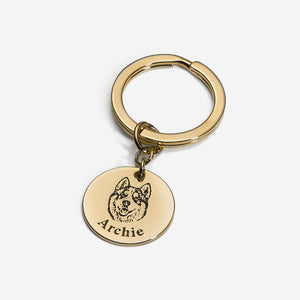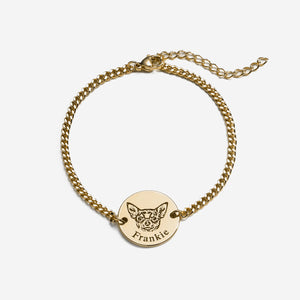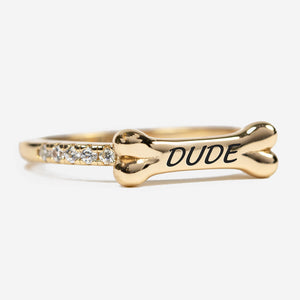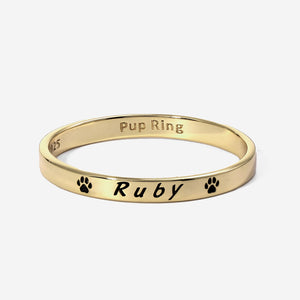You’ve been thinking about what kind of personal needs you have when it comes to adopting a dog- what kind of space you have, time, finances, and so on in last week’s blog. Now it’s time to think about the dog you want!
The biggest things you’ll probably think about are size, energy, temperament, and any special needs the dog might have. You may have a specific breed you want, or are open to anything and everything when it comes to a mix- maybe even a dog who has more breeds in its lineage than you can count on one hand!
You’ll also want to think about whether you want to shop or adopt! It’s all up to you. I personally have more experience adopting, but I also made up a little guide for you when shopping for your new dog!
Choosing a breed
When you’re choosing a dog based on breed, it is a little more objective. It will be much easier to do some research to see what breeds will fit your needs for size, energy, or special needs and considerations related to said breed.
Size
The size of a dog is the easiest thing to determine. If you are looking for a bigger dog, you might go for a golden retriever, husky, german shepherd, or even a newfoundland! Big breeds may make great cuddle buddies if you like getting huge hugs, but make sure you have lots of space for them, and be aware if your particular big breed thinks it’s a lap dog! In some cases you may consider whether you have small children or animals that might be a bit more fragile if a big dog doesn’t know its own size. Some rental properties will have size or weight limits on dogs, so if that’s you, keep that in mind.
A small dog might be more appropriate if you live in a small space or if you want a dog that is easy to travel with or bring with you on errands. Some popular small dog breeds are dachshunds, toy poodles, and yorkshire terriers. My dad has a couple of chihuahuas, and he loves to bring them with him while he runs errands or visits friends or family. It wasn’t all that uncommon to see him walking around the house with one tucked under his arm and the other following close at his heels!
Personally I like bigger dogs, but my current pup Cookie is medium-sized. He’s a little bit of everything. He’s a good size for laying in my lap on the couch, he fits in our car, but it would be difficult to have him in my lap during car rides. He takes up a decent amount of space at night so sometimes I wake up and he’s hogging my blankets for himself! He doesn’t struggle to jump up onto the couch or into the car. We have to be a little picky about where we go with him- if we go somewhere that someone is tolerant of dogs but not a huge fan, I can’t just pick him up to keep him out of the way.
Energy
A dog’s energy level is a huge consideration when thinking of what breed of dog your lifestyle will support. It will directly affect the time and effort you put into your dog’s daily routine. Thinking about the original purpose a dog was bred for will give you a strong idea of what kind of energy needs it will have.
Energy should also be considered in 2 parts- physical energy and mental energy. A dog who has too much excess physical energy will be more rambunctious, whereas a dog with too much extra mental energy may become bored and find creative destructive behaviors like chewing on inappropriate objects or exploring your trash can.
 For physical energy, your dog will need anything from longer, more frequent walks, to intense exercise. Some ways I have heard of for wearing out high-energy dogs is teaching them to use a treadmill or giving them a harness with pockets that you can add weight to to wear them out. Some traditional working dogs will actually enjoy being given this “job”! Get creative with it and have your pup carry some of your hiking supplies while you’re both exploring the outdoors! Some dogs with especially high exercise needs are huskies and greyhounds, since they are bred for different types of racing.
For physical energy, your dog will need anything from longer, more frequent walks, to intense exercise. Some ways I have heard of for wearing out high-energy dogs is teaching them to use a treadmill or giving them a harness with pockets that you can add weight to to wear them out. Some traditional working dogs will actually enjoy being given this “job”! Get creative with it and have your pup carry some of your hiking supplies while you’re both exploring the outdoors! Some dogs with especially high exercise needs are huskies and greyhounds, since they are bred for different types of racing.For mental energy, your dog will need creative outlets. Dogs that were bred for herding or hunting will be a bit more on the curious side and respond well to intense mental exercises such as training sessions or puzzle toys. Dogs with more mental energy are also more adaptable. Of course, don’t assume that these dogs are automatically more intelligent than other dogs, it just means that they have a higher likelihood of needing mentally exhausting activities. For example, border collies are notoriously sharp dogs and quick to figure out what you’re saying, even when you don’t want them to! Other dogs high in mental energy are australian shepherds, retrievers, and bloodhounds.
By the way, if you want some interesting tips on wearing out your dog or interesting activities to do together, we have several articles on creative activities! Things such as wearing out your dog with a box, or a list of activities you can do with your dog inside!
Special Quirks
Some dog breeds will have really specific needs or be more susceptible to special health problems. If you have your heart set on a certain dog breed, do some extra research into these needs so you can be prepared and have the best experience possible with your pup!
Breed-specific health problems can be general lifelong needs, or a predisposition to other late-life health issues. For example, because of the shape of their faces, they are more likely to have issues like eye infections and respiratory issues. German shepherds and similar large dog breeds are more prone to hip dysplasia, where the hip joint doesn’t fit together quite right and can cause arthritis, pain, and problems walking. Dachshunds are more prone to back problems because of their longer bodies.
Speaking of dachshunds, a special need you might come across is the need for a ramp to help them get up to high places due to their shorter legs. Of course, dogs with more luxurious or quickly-growing coats will need regular grooming and haircuts. Huskies shed like crazy, so be prepared to spend a lot of time brushing them when they start shedding in the warmer months! There are countless other breed-specific needs, so if you have an idea what you’re looking for, spend the extra time doing research on that specific breed so you’re prepared. If you plan to get your dog from a breeder, they can also help you understand the specific needs of that breed.
Shop or Adopt?
Since we’ve spent a lot of time talking about dog breeds, it’s time to think about where you’ll be getting your dog! It may be easier to find the breed you’re looking for if you find a breeder than if you were to look at different shelters. However, if you specifically wish to adopt a dog to give it a second chance, you’ll obviously want to start looking at local shelters. Shelters are also a good option if you don’t have a specific dog breed in mind, or if you are more interested in the individual dog’s personality rather than a breed, and especially if you would like to adopt an older, more mature dog!
Shop
Since it’s more straightforward we’ll talk about shopping for your dog first. If you choose to shop, you will want to look for a reputable breeder. There are a lot of places where you can get the breed you want, but the dogs are bred and raised in inhumane conditions for profit. It is important for both ethical reasons and for your own good. Even though choosing any breeder means you’ll get the exact breed you want, there is a chance the dogs may be poorly inbred and more prone to having poor health, or they may be more likely to have behavioral issues due to being raised in terrible conditions.
When looking for a reputable dog breeder, there are a few red flags to look out for:
They are impatient with your questions
If a breeder seems rushed to get through your questions, or isn’t very thorough, that’s a huge red flag. A good breeder will be happy to answer questions and have a passion about their dogs that they’re excited to share.
They don’t share medical records with you
Having a full medical history is important. Having records such as OFA and CERF certificates will prove that the breeder has a commitment to the health of their dogs, including yours. The puppy is poorly socialized or they try to get rid of it while it’s too young
The puppy is poorly socialized or they try to get rid of it while it’s too young
Having 2-3 months to socialize with parents and litter mates is crucial to a puppy’s development. This also helps with the pup’s maturity and ensures it is not taken away from its mother too early. If your breeder is in a rush to get your puppy to you earlier than this, it’s a sign that they either don’t understand or don’t care about a puppy’s healthy development.
They don’t have good documentation on hand.
A good breeder will have documentation of your puppy’s pedigree. If a breeder is hesitant to show these documents, tries to charge extra for AKC (American Kennel Club) papers, or just tells you you’ll get them later, that’s a huge red flag.
A tool to help you find a reputable breeder is to look directly through the AKC website, where they have a marketplace specifically for finding the well-bred puppy of your dreams!
Adopt
If you choose to adopt a dog, you may not have as much choice in your dog’s breed, but you will get to meet lots of dogs with different personalities, ages, quirks, sizes, and more! Keeping the purpose of adopting a dog will help guide you in choosing the right pup. In a shelter, breed will only account for a portion of those attributes. The environment that a dog grew up in may have shaped its health, behaviour, and needs in a different way. Often shelters will have at least some information on their dogs to help you be more aware of their personalities or needs.
Temperament
A dog’s initial temperament in a shelter will not necessarily reflect its true personality. It is in an unusual place that may be either very similar or very different from where it came from. Try to keep this in mind when looking at dogs. If you’re in a situation where you simply do not have the means to put extra time and effort into a dog, then you may look for one that already shows its best behaviour. However, if you are adopting more for the purpose of helping a dog, it may be a good opportunity to help a shy dog come out of its shell, or teach a slightly mischievous dog that there are much more wonderful ways to use its mental energy than destroying its bedding.
How they act w/ others
Many shelters will have information about the dogs they house, which will often tell you who or what a dog particularly gets along with- pets, children, strangers, or even men versus women. This can either be determined by knowing a bit about its background, or just by watching it interact with other dogs, the people volunteering, or the strangers that come to look at the dog. You will probably need to rely a little bit more on the shelter’s opinion of their dogs during this time, but it’s definitely a consideration based on your current living situation. Age and Health
Age and Health
It may be an upside to you if a dog is on the older side. They tend to be a little calmer, more likely to be trained, and may be a good decision for someone with little experience with dogs. Adopting an older dog is great for the shelter too, because they are often not seen as being as “desirable” than puppies. Health is also a good consideration. While a shelter may not have all of a dog’s past medical records, the dog should have had a checkup by a vet at some point. Many shelters also require that dogs are spayed or neutered before they are adopted out- it is a common problem for dogs (or other animals) to be in a home and have babies that are unwanted, or be wild and have too many babies to care for, so by opting to spay and neuter any dogs that go through the shelter, they are helping to slow down an exploding population of animals with no homes.
Special needs
Finally, be aware of any special needs your dog may have. These can be health needs or something extra that your dog will need to love a comfortable and happy life. Maybe you set out to help a special needs dog, or you fell in love with one that happens to need extra love. Either way, the shelter should be able to give you the information you need to best care for your new pup!
Congratulations! You now know everything you need to choose the perfect pup! I hope you enjoyed the blog and that it was helpful. I look forward to writing for you again next week!







